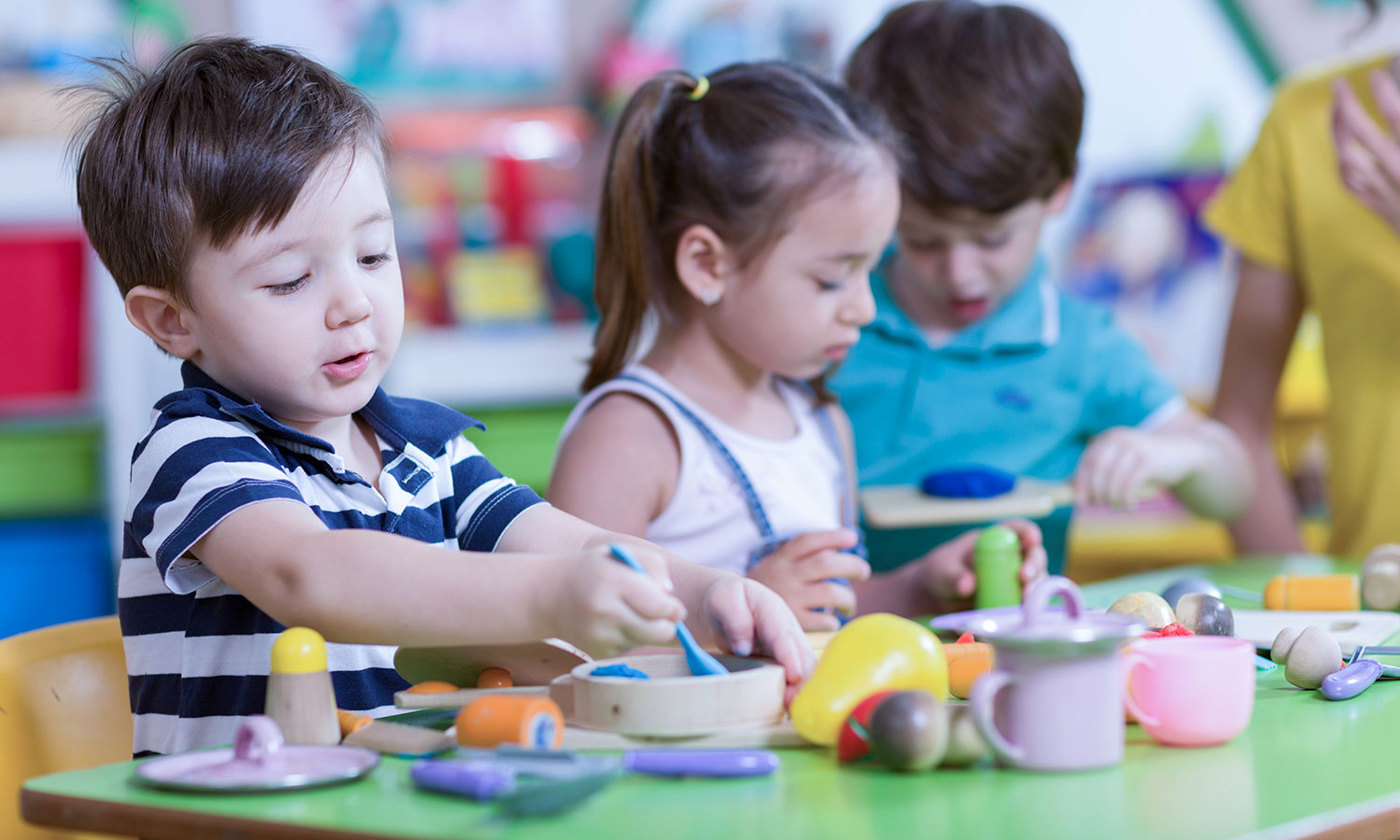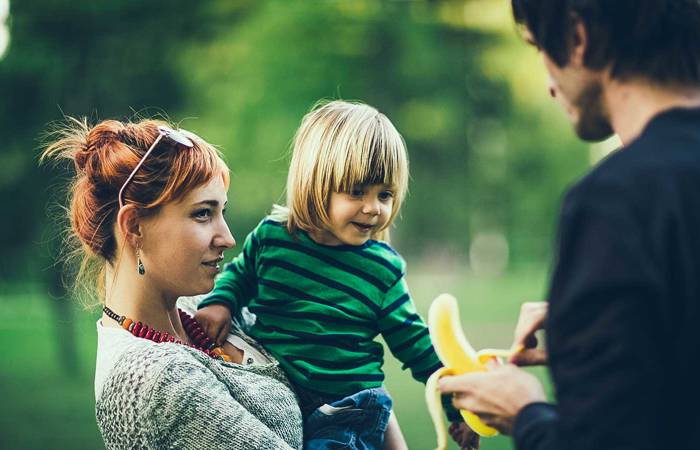Like what you see?
Sign up to receive more free parenting advice.
Thank you for subscribing to our newsletter!
Lifestyle

Credit: iStock.com/nilimage
One in five children start school developmentally vulnerable.1
That jumps to two in five for children who do not access early childhood education and care in the years before primary school.
For children living in rural and remote areas of Australia, they are twice as likely to start school developmentally vulnerable compared to their city peers.
Aboriginal and Torres Strait Islander children are twice as likely as non-Indigenous children to be developmentally vulnerable.
“Those statistics are a key indicator of the health of Australia’s early childhood education and care system,” explains Caroline Reed, Program Director, Early Childhood Initiative at the Centre for Policy Development.
Internationally, we are hovering near the bottom but at the same time many families are struggling to pay for early learning.
“Amongst OECD countries, Australia has one of the highest household expenditures on early childhood education and care,” Ms Reed continues.
In fact, two in three families cite expense as the main hurdle to accessing childcare.2
The most recent UNICEF report on the early years compares the world’s 41 wealthiest nations.
“Australia ranks 34 on access to early childhood, 34 on affordability and 37 on access to parental leave,” Ms Reed says.
Nordic countries are often regarded as the gold standard for supporting families when children are very young, however, Ms Reed explains that countries similar to Australia have far more comprehensive policies than us.
“Canada has 55 weeks of paid parental leave for families, the OECD average is 51.5 weeks, and New Zealand has 20 fully funded hours a week of preschool for three to five-year-olds.”
In more bad news, and one that too many parents are well aware of, navigating the system is complicated.
“We have responsibilities split across governments and even within governments,” says Ms Reed.
Finally, the sector is in desperate need of change.
“The workforce is mainly women, often underpaid, and there are high turnover rates,” she adds.
The end goal is an integrated system that provides seamless education, care and support from birth to eight years.Caroline Reed
Stay up to date with the latest news and articles from First Five Years
Thank you for subscribing to our newsletter!
Starting Better – for children and families
After 12 months of research and consultation, the Centre for Policy and Development has developed the Starting Better report which outlines what we need to do over the next ten years to ensure all children have what they need to thrive.
The report suggests:
- For Australia’s children, access to a minimum of three days of free or low-cost high-quality education and care per week for families as soon as they want it (with additional days at minimum cost).
- In the two years before school, children will access three days of free or low-cost high-quality preschool per week, and, again, for those who need it, any additional days at minimum cost.
- For parents: the all-important time to spend with their children. The report acknowledges that parents shouldn’t have to choose between their career and caring for their children.
- Paid parental leave, 12 months, to be shared between parents.
- Better community support for families, ensuring families are connected to their local networks like nurses, doctors and playgroups.
- Universal access to maternal and child health care with additional home visits for families who need extra support, a wraparound ‘navigator’ service and more effective transitions from early learning to primary school.
“The end goal is an integrated system that provides seamless education, care and support from birth to eight years,” adds Ms Reed.
“The policies will demonstrate the best outcomes when they are progressed together as a package of entitlements for children and families.”
What will this mean for our children’s futures?
Ms Reed explains that, not only do these reforms have immediate benefits for families, children and the sector, but they have long term impacts on our children’s futures.
“There is evidence, with access to high-quality early education and care, children are more likely to succeed in school and go on to tertiary education,” she says.
“As adults they more likely to earn higher wages and less likely to develop health issues.
“They are also less likely to interact with the criminal justice system.”
As for parents, the immediate benefit will be having more time with their children and gaining a work/life balance for their families.
“Longer term, by being linked into local services, parents are more likely to have better health outcomes and be more confident as parents,” says Ms Reed.
“With increased shared parental leave, parents will enjoy more gender equal parenting and they will be more likely to increase their participation in the workforce, especially mothers, which will decrease the gender pay gap and increase women’s economic security.”
For the sector, the benefits will be a more stable and supported workforce who can provide better learning outcomes for children.
“Globally, there is agreement that increased investment in the early years is one of the surest routes to significant gains in productivity and women’s economic security,” explains Ms Reed.
The reforms will be a significant investment, starting with an annual investment of $2 billion that rises to $20 billion by 2030.
However, due to the expected higher tax revenue, business savings and reduced government spending on welfare, health and the justice system, the reforms will deliver a net return of $15 billion annually by 2045.
“We are calling for a commitment from governments, at all levels, to come together, to work together, around what a reformed pathway could look like,” Ms Reed highlights.
“To make a national commitment to a new integrated funding model so there is no confusion about what children and families have access to.”
[1] According to the Australian Early Development Census






